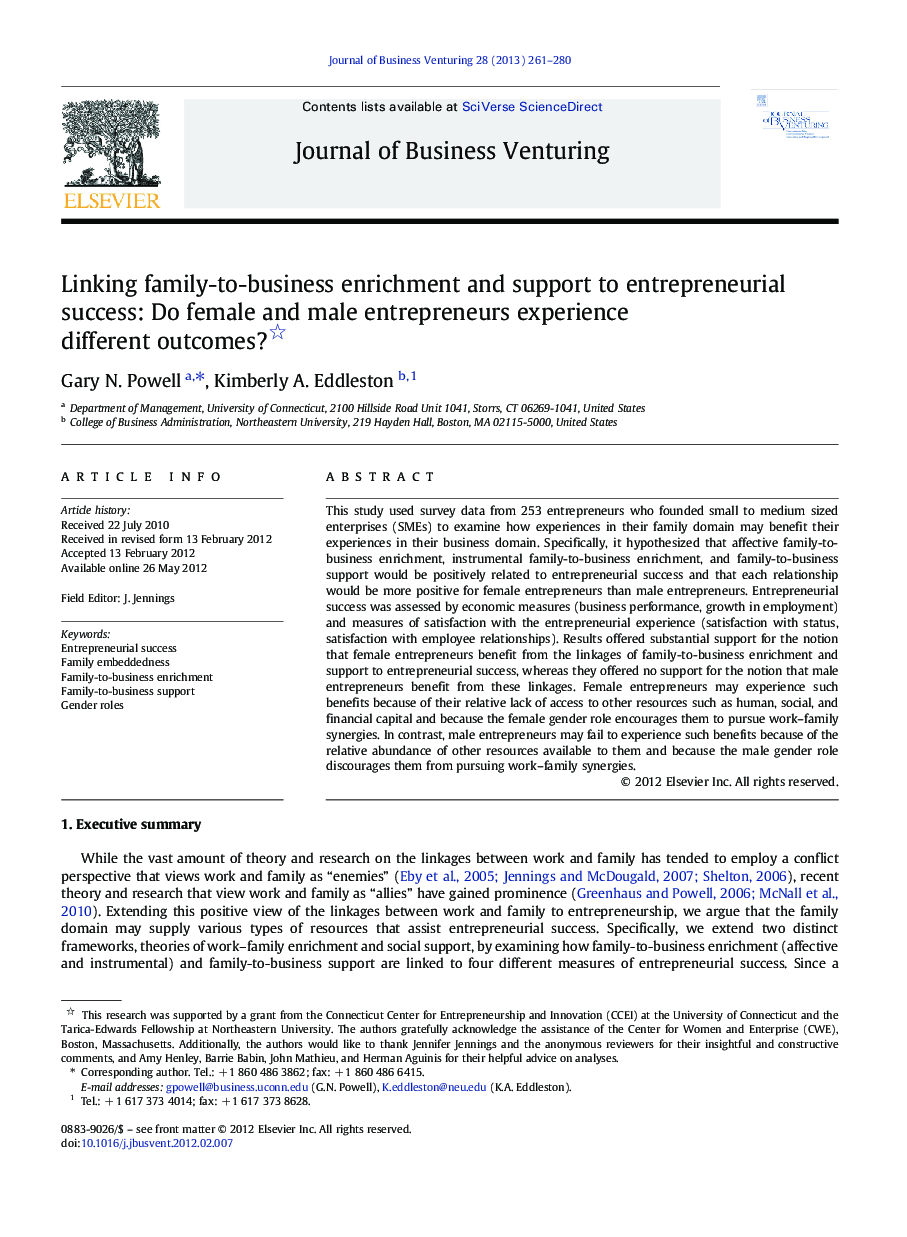| Article ID | Journal | Published Year | Pages | File Type |
|---|---|---|---|---|
| 1019411 | Journal of Business Venturing | 2013 | 20 Pages |
This study used survey data from 253 entrepreneurs who founded small to medium sized enterprises (SMEs) to examine how experiences in their family domain may benefit their experiences in their business domain. Specifically, it hypothesized that affective family-to-business enrichment, instrumental family-to-business enrichment, and family-to-business support would be positively related to entrepreneurial success and that each relationship would be more positive for female entrepreneurs than male entrepreneurs. Entrepreneurial success was assessed by economic measures (business performance, growth in employment) and measures of satisfaction with the entrepreneurial experience (satisfaction with status, satisfaction with employee relationships). Results offered substantial support for the notion that female entrepreneurs benefit from the linkages of family-to-business enrichment and support to entrepreneurial success, whereas they offered no support for the notion that male entrepreneurs benefit from these linkages. Female entrepreneurs may experience such benefits because of their relative lack of access to other resources such as human, social, and financial capital and because the female gender role encourages them to pursue work–family synergies. In contrast, male entrepreneurs may fail to experience such benefits because of the relative abundance of other resources available to them and because the male gender role discourages them from pursuing work–family synergies.
► We survey 253 founders of SMEs. ► We assess entrepreneurial success by economic and satisfaction measures. ► We examine linkages of family-to-business enrichment and support to success. ► We examine whether linkages are more positive for female than male entrepreneurs. ► Overall, female, but not male, entrepreneurs benefit from these linkages.
